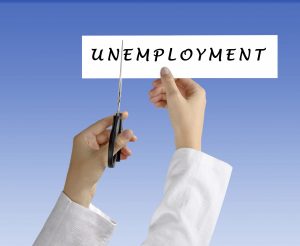
© Colourbox
Aim and Scope
Fair Start Scotland (FSS) is the Scottish Government’s voluntary employment support programme that aims to help the long-term unemployed (more than two years), with complex and enduring health needs, improve their employment opportunities. It aims to provide a tailored, coherent range of support, which can respond flexibly to meet the individual needs of people and their employers and make the best use of resources (Scottish Government 2019). In particular, the Fair Start Scotland in the Forth Valley area aims to do the following for recipients: help break down barriers that might be stopping people from working, develop a programme of support, built around people, keep in regular contact and agree their ongoing help and support, and remain in touch with people when they find employment, making sure their questions are answered. The implementation of services is guided by several key performance indicators all revolving around job outcomes. Partners are also expected to deliver against a series of qualitative measures pertaining to the client’s user journey, retention rate, and sustainable outcomes.
Forms of collaboration
In the Forth Valley area, FSS is delivered through a partnership between Falkirk Council, Clackmannanshire Council and Stirling Council. Falkirk Council is the lead partner who prepared the funding bid, designed the model for the delivery of services and acted as a central point for providing resources, support, or clarification. The relationship between the councils is formalised through a Memorandum of Understanding (MoU), which sets out the formal requirements and guidelines for the collaboration. One of the key aspects of delivery in the Forth Valley area is the role of key workers, who personally oversee clients who engage with the programme, and work with them intensively on a one-to-one basis. The National Health Service (NHS) plays a key role in the collaboration as it provides most health-based interventions required to assist people into work. The network of healthcare professionals involved in delivering services is wide and includes general nurses, mental health professionals, occupational therapists, physiotherapists and general practitioners. Other key collaborators include Skills Development Scotland (the national skills training body), the Scottish Association for Mental Health (Scottish mental health charity) and Forth Valley College who provide education and skills training.
ICT features
An IT system stores the case notes about clients’ progress and this helps to sustain accountability within the collaboration. However, communication between the IT systems of the different partners involved has been slow, and for the first two years of the programme, not all the councils used the same software. Crucially, the IT systems are only accessible by council employees who are involved in the Fair Start programme.
Implications
Accountability and legitimacy effects
Within the Forth Valley collaboration, accountability is achieved through formal procedures such as operational meetings for which an agenda and minutes are provided. Furthermore, services are not allowed to begin until the client agrees to take part. However, where relations have deteriorated irreparably between the client and FSS, there is very little in the way of arbitration or advocacy to intervene. For elected politicians, the primary source of political account-giving is through the quantification of clients who have successfully completed the programme and gone on to gain some form of paid employment. This is a relatively blunt measure though as it does not include the qualitative nature of some of the work nor the type of employment gained.
Furthermore, the operational issue with the ICT systems mentioned above proved to be a hindrance to the sharing of information and accountability horizontally between providers. This impacted the overall speed of the project and generally led to frustration.
Lessons learned (policy managers and policymakers)
Although the collaboration was based on an informal collaborative structure that was in place, the programme was reported as being beneficial for the strategic collaboration and the sharing of skills and learning. The success of the initiative was discovered early on to lie in addressing complex or enduring health problems that posed a barrier to people getting into the workplace. A key hindrance identified of ICT was the inability of the software to accurately express the complexity of some of the work that was being undertaken. In this way, the quantified nature of the information required by the systems failed to accurately reflect some of the more qualitative experiences of both service providers and clients.
Implication for legitimacy
The collaboration in the Forth Valley area has significant implications for different types of legitimacy. Input legitimacy was achieved through the involvement of the client directly affected by the service and the collaboration. The Scottish Government consulted widely through focus groups with unemployed people and contacted different providers across the country to inform the design of the FSS service. The formalisation of the relationship between the three councils through the MoU, which sets out the guidelines for the collaboration, provides an example of throughput legitimacy. Within this agreement, each organisation had the freedom to manage their clients and customise the ‘user journey’ to meet each client’s specific needs. Finally, output legitimacy is measured by the number of long-term unemployed helped by the programme. FSS began accepting referrals in April 2018 and aims to deliver support to a minimum of 38,000 people over a three-year period (Scottish Government 2019a). In its’ first year within the Falkirk Council area, 420 people have taken part in the employability programme and found employment in several different areas such as hospitality, construction, retail, and social care.
To read more about the case study, see D8.1 Networks of account-giving in long-term unemployment collaborations in five countries report.
Further materials/sources
Scottish Government (2019). Fair Start Scotland: Annual Report Year 1. Edinburgh: Scottish Government.
About the Authors
Cate Hopkins, Cardiff University
E-Mail | Homepage
Benedetta Bellò, Cardiff University
E-Mail | Homepage
James Downe, Cardiff University
E-Mail | Homepage
